Dear Families,
As a part of the continuous improvement required by the National Quality Standard this week we are reviewing some of our professional development activities from earlier weeks including those relating to:
- Professional communication and interactions
- Teaching practices
- Use and presentation of our indoor and outdoor environments
Please let us know if we can provide any further information on these topics.
We’re also reviewing our Head Lice Policy and Sand Pit Policy. Summaries follow:
Head Lice Policy
- Anyone can get head lice. They are spread by direct head to head contact because they cannot jump or fly
- An educator may discreetly and respectfully examine a child’s head if they suspect the child has head lice
- If head lice are identified:
- educators will ensure there is no head to head contact with other children eg through cuddling. If they believe it will be difficult to prevent head to head contact, parents will be contacted to collect the child
- child must be treated at home with the ‘condition and comb’ method, chemical lice treatment or a combination of both methods
- child may return the following day if effective treatment has started and there are no live lice on child’s head
- the Nominated Supervisor will place a notice near the service entrance about the head lice outbreak.
Sand Pit Policy
Educators will ensure:
- the sandpit has adequate drainage
- the timber has not been treated with Copper Chromium Arsenate
- the sandpit is filled with washed beach or river san, not builders’/brick sand which is unsuitable
- the sand is at least 500mm deep, and replenished when it drops 100mm below the top edge
- any natural elements (eg boulders) are stable and cannot be moved
- the sandpit is adequately shaded
- they clean the sand by regularly exposing it to sunshine and fresh air
- they rake sand pits before use and regularly during the day, carefully removing and disposing of any contaminated sand or dangerous matter
- they turn the sand over monthly to aerate it
- they change the sand at least annually and whenever it’s extensively contaminated
- they remove toys from the sandpit at the end of each day
- they cover sand pits closely when they’re not in use.
Preschoolers
This week the preschool children finished up with the space topic by making themselves a rocket/astronaut costume. Some rockets fell on our playground and got broken, children had to find a select number of pieces of silver cardboard including one box, and 4 silver rectangles. Everyone sat in a group while our teachers were scattered amongst us, helping us to construct these pieces of recycled material into either an astronaut costume or a rocket costume, as we explored theories of what we might do and how we might proceed.
This week, as it was Child Protection week, the class was introduced to the UN Rights of the Child. It is always interesting to hear children’s opinions when some of the more relatable rights are read to them, and it is nice to note, despite probably having not come into contact with this convention before, that some of the elements seem to be embedded into what children already know and expect. After choosing a right, they drew a picture demonstrating their learning. This not an easy topic to discuss with children, and they often need plenty of examples, gaining new information based on what they already know.
As every week, they also engaged in cooking experiences as making banana muffins and protein balls learning that way, about healthy eating and increasing their mathematical knowledge by measuring proportions and counting cups/scoops.
R them t practice their fine motor skills, scissor skills and patience, they had the opportunity to participate in diverse arts and crafts, making windmills, creating some natural heads that hopefully soon will have grass and chives as hair.
Making windmills cutting the pieces, punching holes. This required patience, scissor skills and some fine motor control.
Educators engage with children in their daily interests and activities, children learn how to get along with others and develop skills that may otherwise take them a bit longer, as the adult scaffolds the play to some extent, even if it is led by the child
Toddlers
Our toddlers had started an amazing journey around the world. First stop Colombia! Learning about different countries helps children to build sense of identity and knowledge of the world around them. To start the trip, they jumped onto an airplane (set up chairs) and proceed to fly to the other side of the ocean. Children engaged onto this pretend play and enjoyed seeing how their educators join them on the trip. They ‘ve been so busy looking at maps, learning about animals, creating some Colombian “emerald” complements and eating some of the delicious food that country has to offer. Even their class has become a little bit like the south American country decorated with hats, flags and Colombian coffee, the last one also provides a special scent that stimulates the little one’s senses.
One of their favourites experiences of the week has been the Colombian Market where children were able to go and buy some Guayaba juice, arepas and hats and complements with some golden coins.
babies
The babies of the first half of the week are getting older and each day they look more and more interested in the toddlers’ experiences. Therefore, our educators join strengths and carry out the experiences for both groups. This week our babies had the opportunity to discover new things and flavours about Colombia.
The Lock out Emergency Drill was particularly fun for our babies because they got to go in our “baby bus” (Emergency cot). At the beginning they looked pretty confused but at the moment we stepped out to the street fun and entertainment was served. They enjoyed pointing out the different vehicles, trees and animals we crossed in the street.
The last two days the activities had been more focused into developing their senses and exploring the environment. They had lots of fun getting messy and playing with some trucks in a small controlled mud area that offers them the opportunity to create a bond with nature while developing their sensory skills and never forget, immune system!


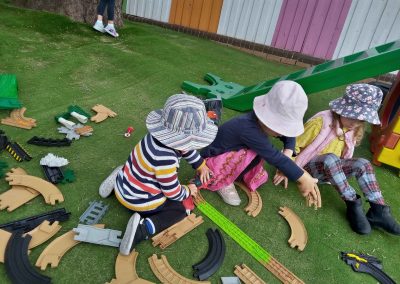
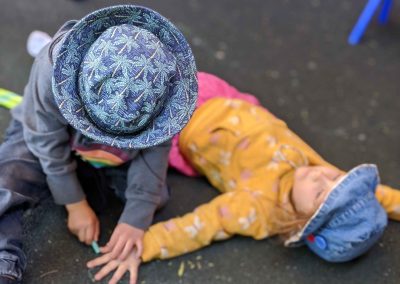
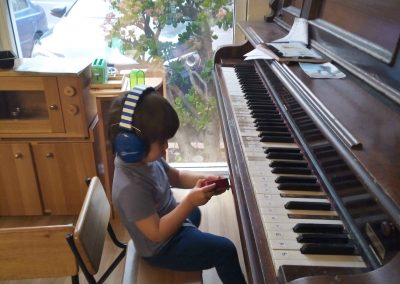
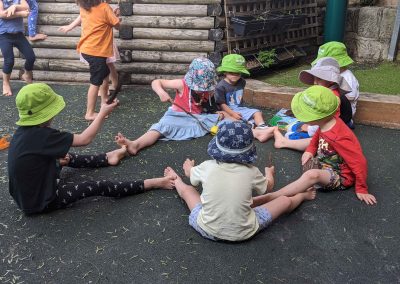
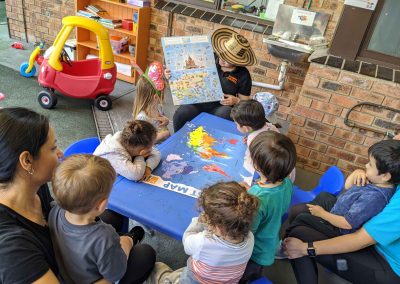
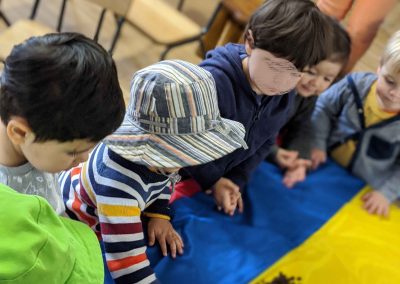
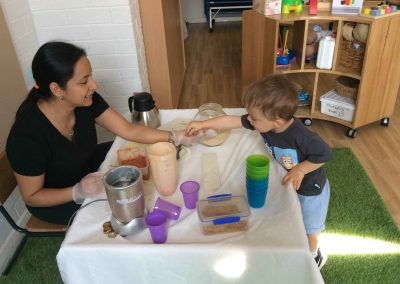
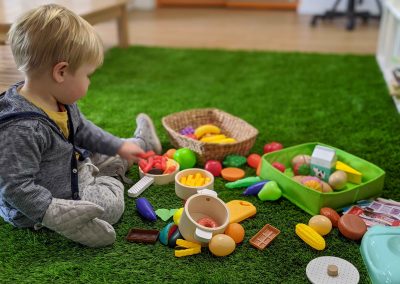
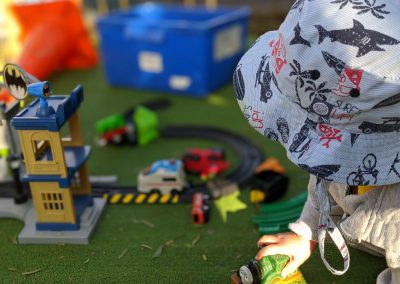
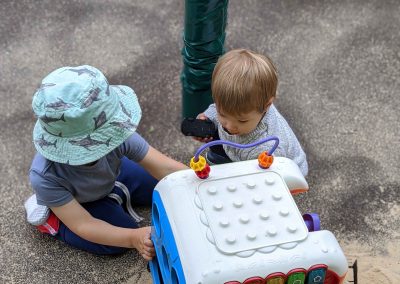
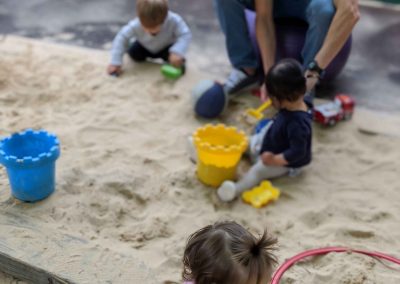
Recent Comments